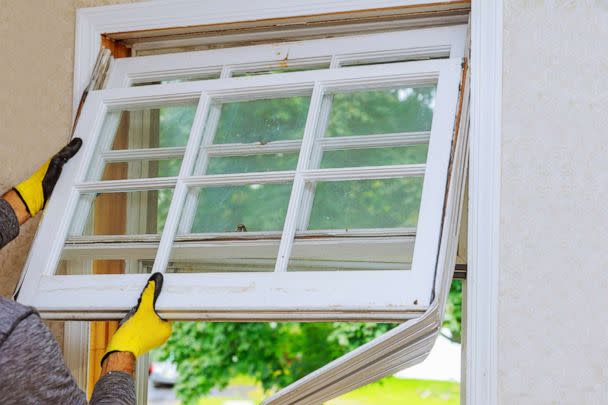How to protect your home and keep energy costs down during heat waves

Summer has just started but millions around the country have already experienced record-breaking heat waves, forcing people to blast air conditioning and think of ways to protect their homes during an onslaught of high temperatures, all while trying to keep energy costs low.
The U.S. has already seen heat indexes reach dangerous levels this summer. Last month, Shreveport, Mississippi, reached 105 degrees, while temperatures in Houston, Texas, hit 103 degrees.
Drought conditions in parts of the country also make it ripe for pasture losses, water shortages and wildfires, which puts people's homes at risk.
Protecting your homes
Extreme weather is costing Americans billions of dollars. In 2020, extreme weather cost U.S. taxpayers $99 billion, with heat waves and droughts costing taxpayers an average of $6.4 billion a year since 1980, according to the Center for American Progress.
According to the U.S. Department of Homeland Security, some tips homeowners could use to protect their home include adding insulation to keep the heat out, incorporating window reflectors and weather stripping windows and doors.
How to conserve energy during a heat wave
"Windows and doors are critical," Jim Reinhart, CEO and president of Ygrene, told ABC News. "Today's windows and doors are way more efficient than those that many homes were constructed in 30 to 40 years ago."
Reinhart said having a proper roof is also important in protecting your home from extreme heat and can help reduce your energy costs by at least 20%.
Rising temperatures can also increase a house's humidity if not properly maintained, which can cause mold to grow.
If roofs, windows and doors are not regularly supported, issues, such as water damage, can cause bigger and more expensive problems, Reinhart added.
"A lot of what we ask people to do is not to just fix it, but fix it appropriately," he said.
Keeping energy costs down

Customers are expected to be hit hard financially because of rising energy costs, especially during the summer.
Utility companies have warned customers that the high costs of natural gas are leading to an increase in electricity prices. The war in Ukraine has forced the U.S. to export a record amount of gas, driving up the price.
Some tips the Department of Energy suggests for keeping costs down include setting your thermostat to a temperature you're comfortable with and an indoor temperature that isn't that much different from the outside temperature.
Electric Reliability Council of Texas (ERCOT) suggests setting your thermostat to 78 degrees or higher and using ceiling fans to help circulate the air throughout a room.
MORE: Megadrought out West expected to intensify, expand east: NOAA
Logan Atkinson, executive director at Alliance for Affordable Energy, told ABC News people should look to see what energy efficiency programs their states offer to help reduce costs.
"Most utilities are required around the country are to provide [these programs]," Atkinson said. "If you're a low-income homeowner, most of those programs are free of charge entirely."
Rising temperatures will undoubtedly lead to an increased usage of people's air conditioning systems.
Homeowners with heating, ventilation and air conditioning systems, commonly referred to as HVAC, should have them serviced by a technician to ensure they're running efficiently.
The cost to replace an HVAC system costs an average of $7,000, with some systems going up to $10,000, according to Home Advisor. It is more economical to maintain it than replace a broken system.
Atkinson said the efficiency programs could cover some costs if you're keeping the system serviced.
How to protect your home and keep energy costs down during heat waves originally appeared on abcnews.go.com
